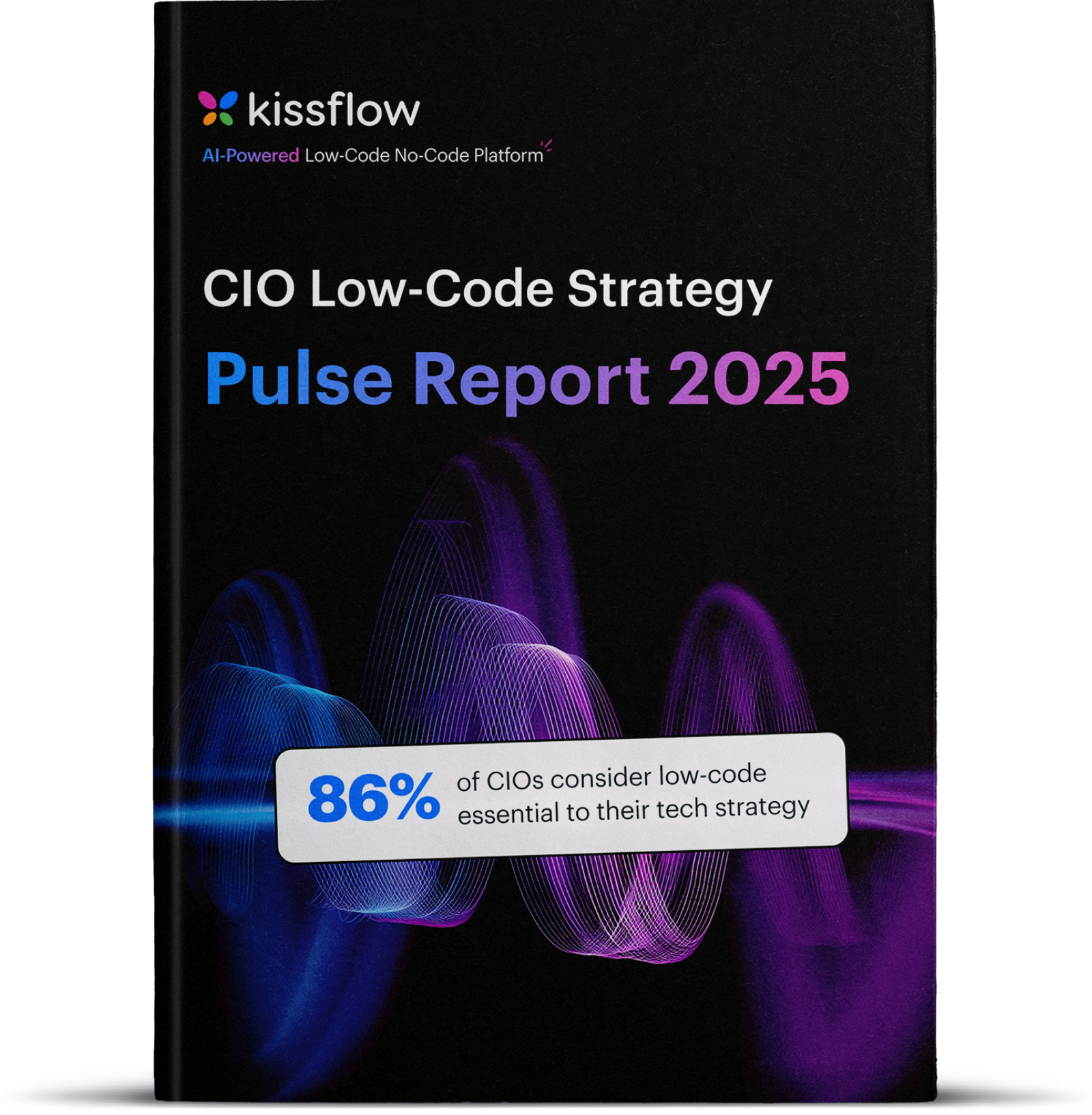As a Chief Information Officer (CIO) or Business Transformation Professional (BTP), you know the vital role that business processes play in your organization. However, optimizing and digitizing these processes to fully harness their potential can often feel like a daunting task.
Understanding the ins and outs of this technology not only gives you a strategic advantage but also empowers you to lead your organization towards improved efficiency, productivity, and, ultimately, success. This post will guide you through comprehending business process technology and effectively utilizing it for your organization's benefit.
Business process technology refers to using solutions, tools, and techniques to establish effective business processes, create impactful process change in the organization, and streamline processes and workflows. It helps companies achieve better visibility and agility through process optimization, management, and automation.
Learn more: Automation Technologies
Types of business process technology
1. Business process management
Business process management ensures that your existing processes are efficient, productive, and cost-effective. It is about taking a step back to look at how all the processes work in tandem, instead of reviewing them individually. The goal is to analyze the current state of the organization and identify any areas of improvement. It also involves reviewing the current processes to make sure they are working as they are supposed to be.
2. Business process monitoring
Business process monitoring involves measuring and analyzing the performance of different business processes.
Organizations can rack process cycle time, key performance indicators, and costs associated with a business process. More importantly, constant monitoring can be used to identify errors, process bottlenecks, and compliance issues before they cause any severe damage. This helps improve visibility and gain more insight into the processes. Organizations can also understand how all the processes are functioning and if they are completely aligned with the business goals or not.
3. Business process optimization
Business process optimization is about analyzing and editing business processes that make up the core of your business. It is the targeted redesign of business operations to strengthen individual processes while also streamlining the way all processes work together.
So, any existing problems and bottlenecks found in the monitoring stage are optimized at this stage for improved performance.
4. Business process modeling or mapping
Business process modeling or mapping involves designing business processes before they are put into action. This can include creating visual flowcharts to decide the sequence of workflows, benchmarks, and decision points.
By mapping processes and outlining them with clear start and end points, it becomes easier to brainstorm business processes before they are put into action. This can also significantly improve efficiency and cut down on monitoring and optimization time as well.
5. Business process integration
This includes integrating business processes with legacy systems to cut down on the extra time that would otherwise take to upgrade legacy applications. It also involves integrating one business process with another.
6. Business process automation
Business process automation (BPA) is a technology-driven strategy to automate business processes. It can save businesses time and money by making processes more efficient and eliminating the need for manual labor. It can also improve accuracy and consistency by reducing the chances of human error.
Benefits of business process technology
1. Eliminate bottlenecks
Business process technology helps understand the current processes, analyses the performance gaps, and streamlines them by fixing any errors and eliminating bottlenecks, which in turn minimizes risks.
2. Automation
You can automate repetitive parts of a business process to save time. This also ensures that employees are only invested in relevant and complex tasks instead of getting bogged down by repetitive tasks, which can eat up a lot of their time and decrease efficiency.
3. Decreased costs
With streamlined and automated processes that are built to improve efficiency in organizations inherently, you can decrease wasteful expenditure and optimize costs as well.
4. Improved transparency and collaboration
When employees have better visibility into the business processes they are involved in, everyone is always aware of each other’s responsibilities, timelines, and even bottlenecks. Improved transparency in teams also directly boosts collaboration and accelerates task completion.
5. Agility
Optimizing processes easily leads to increased agility in company operations. You can make changes to processes as and when required to keep up with the industry and customer demands constantly. With business agility, organizations can always stay one step ahead and continuously improve processes to align with the new changes.
6. Improved productivity
When you have automated business processes that require little to no intervention, approvals get faster, and any information retrieval becomes a whole lot easier. This allows employees to do more in less time, boosting productivity across the organization.
Leverage the power of business process technology
Business processes form the core of most digital transformation initiatives, and the only way to make processes more efficient is through business process technology. Incorporating it directly leads to improved processes, more resilient everyday operations, and better transparency across the organization. By adopting the right business automation software, organizations can connect people, processes, and data to work seamlessly together. This not only reduces bottlenecks but also creates a more agile environment that can quickly adapt to changing business needs.
With this, you can start designing custom business processes for various departments across the organization. It is your go-to work management platform designed to streamline your processes effectively, giving you the agility and flexibility to run your business operations hassle-free.
Kissflow allows you to create custom forms for every process, define workflows, apply for user permissions, and monitor the performance of each process. Solve your workflow challenges with Kissflow Platform and optimize your team's productivity.
Frequently asked questions
1. What defines modern business process technology in enterprises?
Modern tech combines process modeling, automation, rules, analytics, and integrations into one lifecycle.
It helps enterprises move from manual execution to measurable, governed, and continuously improving operations.
2. Why do CIOs prioritize integration capability in process tech?
Because enterprise processes span ERPs, CRMs, HRIS, and legacy systems.
Integration removes reconciliation work and enables true end-to-end automation.
3. How do analytics change the value of BPM technology?
Analytics show bottlenecks, wait states, and exception patterns in real time.
This turns BPM from “automation” into a continuous optimization engine.
4. What role do rules engines play in process technology?
They externalize decision logic so policies can be updated without redesign.
This improves agility and reduces maintenance load for IT teams.
5. How does low-code strengthen process technology adoption?
Low-code speeds up workflow delivery and enables fusion teams to contribute safely.
IT maintains governance while business accelerates improvements.
6. What trend is reshaping business process technology now?
AI-assisted automation and predictive process intelligence are becoming core layers.
They help processes adapt dynamically instead of staying rigid.













